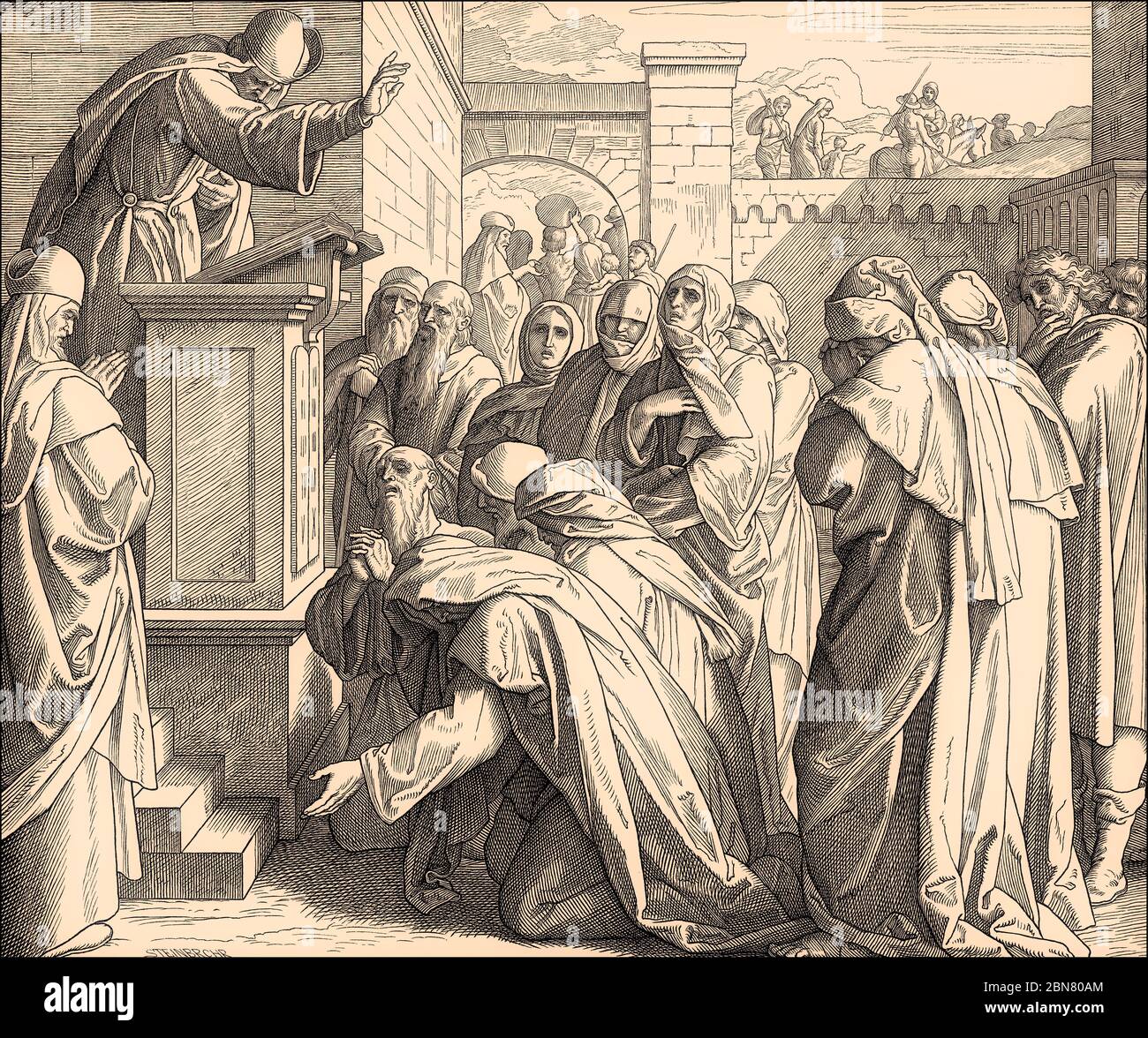

He wanted the Lord to change the situation and blamed himself for not being able to change the people’s hearts. His heart ached, but he still trusted the Lord.

What must the world think of God’s people with dilapidated city walls? What would distinguish God’s people who were guilty of intermarriage with those not in proper covenant relationship with the one true God? Nehemiah and Ezra were then, and are now, an encouragement to God’s people to magnify worship as their top priority, to emphasize the need for and use of God’s Word as the only authoritative rule for living, and to be concerned about the image God’s people show to the world.Įzra came back from captivity in Babylon expecting to find the people serving the Lord with gladness, but upon his return to Jerusalem, he found the opposite. These reforms magnified the need for a genuine concern for reputation and for public image. This same king also helped Nehemiah restore some measure of respectability to God’s holy city.Įzra’s effective ministry included teaching the Word of God, initiating reforms, restoring worship, and leading spiritual revival in Jerusalem. He used Artaxerxes, another Persian king, to authorize and finance the trip and Ezra to teach God’s people His Law. God is universally sovereign and can use a polytheistic king of Persia to make possible His people’s release. The book of Ezra continues from where 2 Chronicles ends, with Cyrus, king of Persia, issuing a decree that permitted the Jews of his kingdom to return to Jerusalem after seventy years of captivity. Ezra’s goal was to implement the Torah, and his impeccable priestly and scribal credentials allowed him to remain the model leader. Ezra 7:10 describes a shaping of the community in accordance with the Torah. Ezra renewed the celebration of festivals and supported the rededication of the temple and the rebuilding of the Jerusalem wall. Ezra condemned mixed marriages and encouraged Jews to divorce and banish their foreign wives. Ezra was a scribe and priest sent with religious and political powers by the Persian King Artaxerxes to lead a group of Jewish exiles from Babylon to Jerusalem (Ezra 7:8, 12).

Zerubbabel reconstructed the temple (Ezra 3:8), Nehemiah rebuilt the walls (Nehemiah chapters 1 and 2), and Ezra restored the worship. Once completed and verified, the manuscripts were usually put in a sacred place.Ezra was the second of three key leaders to leave Babylon for the reconstruction of Jerusalem. If just two letters touched each other the document was deemed invalid. Scribes had to count the number of letters, words, and so on of each manuscript they wrote. If 3 or more pages required any corrections, the entire manuscript had to be rewritten. Their work was generally reviewed within thirty days. They were not allowed to write columns that had 61 lines of text or more. Each word had to be read aloud before it was written down.Īdditionally, every column written by one of the scribes had to have a minimum of 48 lines of text. Additionally, the ink they used had to be prepared using a very special formula and had to be black in color.īefore each time a scribe wrote the name of God they were to completely wash both their writing instruments and themselves. For example, those who performed the copying were permitted to use ONLY animal skins that were clean for writing. Scribes followed meticulous procedures and methods for making copies of God's law (Torah). Jesus knew in advance, and stated such to the disciples, that their role would be big in regard to helping bring his ultimate death on the cross (Mark 8:31, Matthew 16:21). This group, along with other religious leaders, are usually portrayed in the Gospel accounts as opponents of Jesus who actively sought to put him to death (Mark 11:27). Jesus referenced their authority to convey God's word to the people when he said, "The scribes and the Pharisees sit in Moses' seat. Their high regard as teachers of the law was such that the apostle Paul warned Timothy to be wary of those who pretended to be one of them (1Timothy 1:5 - 7).

They were also eligible to be elected to the Sanhedrin (the supreme and highest council of the Jews). In fact, since writing was practiced only by those with a certain level of intelligence, scribes were often considered wise men (1Chronicles 27:32). They were generally the most educated men in the nation and as such became influential. As in other parts of the world, these people were considered honored professionals whose modern day equivalent would be judges or lawyers.


 0 kommentar(er)
0 kommentar(er)
